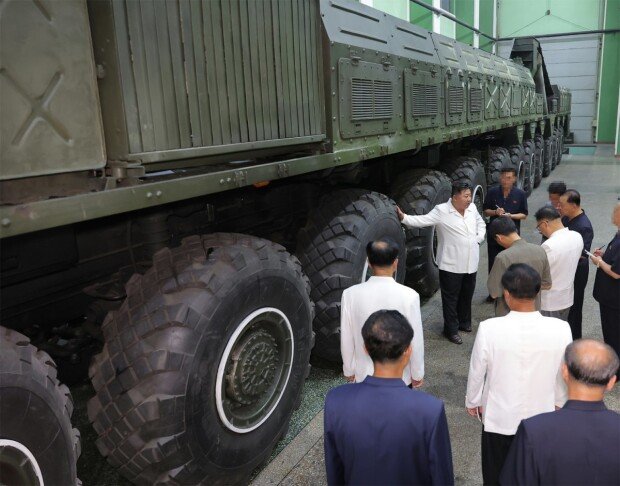N. Korea conducts ICBM test ahead of U.S. presidential election
N. Korea conducts ICBM test ahead of U.S. presidential election
Posted November. 01, 2024 07:45,
Updated November. 01, 2024 07:45

North Korea launched its highest-altitude and longest-flight intercontinental ballistic missile (ICBM) test to date on Thursday, just five days before the U.S. presidential election. The new missile—described as a larger and more powerful solid-propellant ICBM than the Hwasong-17 or an upgraded version of the Hwasong-18—marks a significant leap in North Korea’s ability to reach the U.S. mainland, experts say.
Hours after the test, North Korean leader Kim Jong Un asserted that the country “will never change its course of strengthening its nuclear arsenal,” according to North Korea’s state-run Korean Central News Agency.
South Korean military officials reported that the missile launched from Pyongyang at 7:10 a.m. on Thursday, reaching an altitude of over 7,000 kilometers and traveling 1,000 kilometers in a flight lasting 86 minutes before landing in the East Sea. Analysts noted this as North Korea’s most ambitious test yet in terms of both height and duration. Based on trajectory analysis, the missile could theoretically fly 16,000 kilometers if launched at a lower angle, placing the entire U.S. mainland within its range. A South Korean military official indicated that the test likely featured either a newly developed ICBM or an enhanced Hwasong-18 capable of carrying a heavy nuclear payload or multiple warheads.
This escalation follows North Korea’s claim in June that it successfully tested a multi-warhead ICBM, demonstrating a capacity for simultaneous strikes on three independent targets. Experts see the move as part of Pyongyang’s broader strategy to bolster its nuclear arsenal with more sophisticated and versatile weaponry that could reach the U.S. mainland, including Washington, New York, Boston, and Chicago.
Compounding concerns, the term “denuclearization” was conspicuously absent from a joint statement issued at the U.S.-South Korea Security Consultative Meeting (SCM) on Wednesday, just five hours before North Korea’s missile launch. It was the first such omission in nearly a decade. Some analysts interpret this as a tacit acknowledgment of North Korea’s nuclear reality, potentially indicating a shift in U.S. policy. The South Korean military, however, downplayed the significance, stating that “denuclearization of North Korea is so fundamental to the U.S.-ROK alliance that it was omitted during the detailed wording process.”
윤상호 ysh1005@donga.com·







